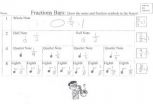(Press-News.org) Poverty is bad for your health. Poor people are much more likely to have heart disease, stroke, and cancer than wealthy people, and have a lower life expectancy, too. Children who grow up poor are more likely to have health problems as adults.
But despite these depressing statistics, many children who grow up poor have good health. In a new article published in Perspectives on Psychological Science, a journal of the Association for Psychological Science, Edith Chen and Gregory E. Miller of the University of British Columbia suggest a possible reason: some children have role models who teach them to cope with stress.
"Who are these bright spots who, despite a lot of adversity, make it through and do well?" Chen asked. She suspects the answer has to do with stress. Growing up poor can be stressful, and stress increases the risk of developing chronic diseases. Poor children are less likely to have a predictable routine and a stable home; their parents may have to work multiple jobs to make ends meet and may not be able to afford to fix a leaky roof, for example. Poor children are also more likely to experience violence. One study found that nearly 50% of low income youth had witnessed a murder.
In the face of this stress, Miller and Chen propose a strategy that may work to reduce stress and improve health. They call it "shift-and-persist." The first part, "shift," means reappraising things that are stressful. For example, if you get fired from a job, you can feel miserable and lash out at people around you—or you can reassess the situation to find the bright side. "You think, 'I wouldn't choose this, but maybe it's an opportunity to end up in a better job down the line,'" Chen says. Research on children growing up in adversity has found that children do well if they can self-regulate like this.
But it's not enough to accept stressful situations. The second part, "persist," has to do with staying positive in the longer term—"holding out hope and finding a broader meaning in your life," Chen says. Shifting perspective on a particular situation helps in the short term, but, she says, "You have to do that with the idea that there's a broader goal in mind." Many studies have found that finding meaning helps people get through difficult situations, like spinal injuries or collective traumatic experiences like the September 11, 2001 terrorist attacks.
The way most children learn "shift-and-persist" may be through positive role models, Chen says. Parents, teachers, aunts, and other adults can model healthy ways of dealing with stress and also teach children a sense of optimism about the world.
The goal, of course, is to extend this help to other children. There are some hints that it may be possible to use community leaders to improve health, Chen says. "For example, in kids with asthma, if you get people in the community to serve as lay coaches for the parents, that can be beneficial to the kids," she says. It may also be possible to use role models in the community to teach more children to reappraise their stress and think positively about the future.
###
For more information about this study, please contact: Edith Chen at echen@psych.ubc.ca.
Perspectives on Psychological Science is ranked among the top 10 general psychology journals for impact by the Institute for Scientific Information. It publishes an eclectic mix of thought-provoking articles on the latest important advances in psychology. For a copy of the article ""Shift-and-Persist" Strategies: Why Low Socioeconomic Status Isn't Always Bad for Health" and access to other Perspectives on Psychological Science research findings, please contact Lucy Hyde at 202-293-9300 or lhyde@psychologicalscience.org.
Low socioeconomic status means worse health -- but not for everyone
2012-03-22
ELSE PRESS RELEASES FROM THIS DATE:
Parents of children with cancer distrust and fear online sources of health information, study shows
2012-03-22
BUFFALO, N.Y. -- Parents and adult caregivers of pediatric cancer patients prefer personal consultations with trusted health care providers over online sources for information about their child's illness, according to a University at Buffalo research study.
Despite the accessibility of online medical information, the UB study found that parents not only distrusted information found through the Internet, they often feared what types of information they might encounter.
"Respondents were telling us they were uncertain of the information online and that they were afraid ...
False killer whales use acoustic squint to target prey
2012-03-22
Hunting in the ocean's murky depths, vision is of little use, so toothed whales and dolphins (odontocetes) rely on echolocation to locate tasty morsels with incredible precision. Laura Kloepper from the University of Hawaii, USA, explains that odontocetes produce their distinctive echolocation clicks in nasal structures in the forehead and broadcast them through a fat-filled acoustic lens, called the melon. 'Studies by other people showed odontocetes have the ability to control the shape of the echolocation beam and it has always been assumed that they are using the melon ...
Getting in rhythm helps children grasp fractions, study finds
2012-03-22
Tapping out a beat may help children learn difficult fraction concepts, according to new findings due to be published in the journal Educational Studies in Mathematics. An innovative curriculum uses rhythm to teach fractions at a California school where students in a music-based program scored significantly higher on math tests than their peers who received regular instruction.
"Academic Music" is a hands-on curriculum that uses music notation, clapping, drumming and chanting to introduce third-grade students to fractions. The program, co-designed by San Francisco State ...
Prenatal exposure to combustion-related pollutants and anxiety, attention problems in young children
2012-03-22
NEW YORK ( March 22, 2012) - Mothers' exposure during pregnancy to a class of air pollutants called
polycyclic aromatic hydrocarbons (PAH) can lead to behavioral problems in their children. PAH are
released to air during incomplete combustion of fossil fuel such as diesel, gasoline, coal, and other
organic material.
The study is the first report of associations between child attentional and behavioral problems among school‐age children and two complementary measures of prenatal PAH exposure: monitored air concentrations of PAH and a PAH-specific biomarker of exposure ...
Nearly all states have taken action on Affordable Care Act's Patients' Bill of Rights
2012-03-22
March 22, 2012, New York, NY—As the second anniversary of the Affordable Care Act approaches, a new Commonwealth Fund report finds that 49 states and the District of Columbia have already taken action supporting the law's implementation, such as passing legislation, issuing regulations or other guidance, or actively reviewing insurer filings. Early insurance market reforms in the law include new rules for insurers such as bans on lifetime limits on benefits and dependent coverage for young adults up to age 26.
The report, Implementing the Affordable Care Act: State Action ...
Majority of fourth graders are exposed to smoke, study finds
2012-03-22
AUGUSTA, Ga. – More than 75 percent of fourth-graders in urban and rural settings have measurable levels of a nicotine breakdown product in their saliva that documents their second-hand smoke exposure, researchers report.
A study of 428 fourth graders and 453 parents in seven rural and seven urban Georgia schools also showed that the urban children were more likely to be smokers – 14.9 percent versus 6.6 percent. Additionally urban children have the most exposure to smokers: 79.6 percent versus 75.3 percent, according to findings presented to the 15th World Conference ...
Optex Announces PoE IP Encoder to Ease Integration of Optex Sensors with VMS and NVRs
2012-03-22
The new PIE-1 Alarm IP Encoder from Optex provides the dual functions of PoE power delivery to remote Optex devices and conversion of alarm signals to an IP protocol for delivery to video management systems or network video recorders. The PIE-1 provides support for Optex sensors in security systems using VMS and NVRs through vendor- unique API.
The device can be used in a number of ways:
- PoE (Power over Ethernet) only: to power remotely the Optex Redscan laser scanner provides IP alarm signals natively and requires no conversion encoding. The PIE-1 supports both ...
French Media Spotlight American Writer's Quest to Overhaul French Grammar
2012-03-22
"Erik Orsenna, dictator of grammar! Look, you're killing the French language!" the rapidly-becoming viral video went (OK, viral by French not American standards).
Then the number 2 magazine group of France called "Le Nouvel Obs" picked up the story as did many literary websites (see attachments on right-hand side of this text.)
Some of these press releases start with those very same angry words, the aggressive words pronounced by the author on the video against French grammar.
The problem is that the author on the video is in fact an American ...
Fox Chase Cancer Center leads efforts to establish national standards for survivorship care
2012-03-20
HOLLYWOOD, Fla. (March 18, 2012)—People are living longer with and after a cancer diagnosis, making survivorship clinics and programs—as well as official guidelines and practices governing the care of survivors—an important emerging component of modern cancer care. Many institutions are looking to gather these resources into an easily understandable plan for their survivors.
"Cancer survivors face a lot of unique and very specific challenges," says Crystal S. Denlinger, M.D., a medical oncologist at Fox Chase Cancer Center who will present on best practices in cancer ...
Tracking proteins behaving badly provides insights for treatments of brain diseases
2012-03-20
A research team led by the University of Melbourne, Australia, has developed a novel technique that tracks diseased proteins behaving badly by forming clusters in brain diseases such as Huntington's and Alzheimer's.
The technique published in Nature Methods today is the first of its kind to rapidly identify and track the location of diseased proteins inside cells and could provide insights into improved treatments for brain diseases and others such as cancer.
Developed by Dr Danny Hatters and his team of the Department of Biochemistry and Molecular Biology at the ...


